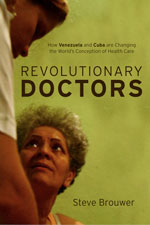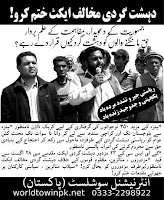Bolivia: Letter from mass Indigenous movement CONAIE to Evo Morales regarding TIPNIS controversy
The following letter was translated by Federico Fuentes. The translation first appeared on Bolivia Rising.
Camila Piñeiro Harnecker: Cooperatives and socialism in Cuba

September 26, 2011 -- First posted at Cuba's Socialist Renewal, posted at Links International Journal of Socialist Renewal with permission -- Cooperatives and Socialism: A Cuban Perspective is a new Cuban book, published in Spanish earlier this year. This important and timely compilation is edited by Camila Piñeiro Harnecker (pictured above). Avid readers of Cuba's Socialist Renewal will recall that I translated and posted a commentary by Camila, titled "Cuba Needs Changes" [also available at Links International Journal of Socialist Renewal], back in January. Camila lives in Cuba and has a degree in sustainable development from the University of Berkeley, California. She is a professor at the Centre for Studies on the Cuban

Protests at COP16 in Cancun, Mexico, December 2010. Protests are being organised to take place at COP17in Durban, November-December 2011.
Mauritius, Seychelles: Wikileaks exposes US imperialism's modus operandi

The Seychelles houses a base from where a fleet of “hunter-killer” drones operate.
(Updated Oct. 4) Bolivia: Avaaz, NGOs wrong on Morales and Amazon protests; police attack condemned

March in Trinidad, Bolivia, against a proposed highway that would go through part of the Amazon, August 15.
By Federico Fuentes
September 25, 2011 -- Green Left Weekly -- Statements, articles, letters and petitions have been circulating on the internet for the past month calling for an end to the "destruction of the Amazon". The target of these initiatives has not been transnational corporations or the powerful governments that back them, but the government of Bolivia's first Indigenous president, Evo Morales.
At the centre of the debate is the Bolivian government’s controversial proposal to build a highway through the Isiboro Secure National Park and Indigenous Territory (TIPNIS). TIPNIS, which covers more than 1 million hectares of forest, was granted Indigenous territory status by the Morales government in 2009. About 12,000 people from three different Indigenous groups live in 64 communities within TIPNIS.
Fred Magdoff and John Bellamy Foster: A `realistic’ answer to the ecological crisis

"What is clear from ...
Cuba: Voluntary work abolished -- a step forward?
By Luis Sexto, Havana
September 7, 2011 -- Progreso Weekly -- Voluntary work in Cuba, as a practice on weekdays or Sundays, has been abolished. In view of this action, neither original nor daring, one might suppose that the decision by the Cuban Trade Union Confederation (CTC) to end voluntary work, except in times of disaster or when enterprises face acute needs, has earned the implicit approval of most Cubans.
But to state the opposite, namely that many Cubans are not in agreement, might mean that one dons the mask of someone who is unthinking or opportunistic, or of a dogmatic person who does not understand the society in which they live and the circumstances that surround it.
To deny the decision's importance in the strategy of changes would not be accurate either, in my view. The effects of the measure – adopted during the 87th plenum of the CTC's national council on February 18 – are several. First, we must acknowledge that voluntary work, as it evolved, shortened leisure time for workers and reduced their status as free individuals through union and administrative pressures.
Revolutionary health care in Cuba and Venezuela: Beyond Western 'sickness-based' medicine

Monthly Review Press has kindly given permission to Links Internati
Cuban Five: Judge issues cruel and bizarre ruling
Judge Lenard order's René González to live in Miami on supervised release
[Below the article is a model protest letter; please adapt and send.
